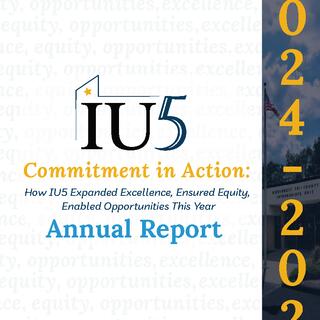School-Based ACCESS Program
The School-Based ACCESS Program (SBAP) is a cooperative effort between the Pennsylvania Department of Education (PDE), the Pennsylvania Department of Public Welfare (DPW), the Federal Centers for Medicare and Medicaid Services, and PDE’s contractor Leader Services.
SBAP provides the opportunity for school districts, intermediate units, state-owned schools, approved private schools, and charter schools to earn federal dollars through the partial reimbursement for health-related services that are currently being provided to special education students as part of their Individualized Education Plan (IEP). Billable services include Nursing, Personal Care Assistance, OT, PT, Hearing, Orientation & Mobility, Speech & Language, and Psychological services. ACCESS dollars can only be used to enhance or expand special education programs.
Additional Information
- Direct Services and Special Transportation Claiming;
- Medicaid Administrative Claiming (MAC);
- Random Moment Time Study (RMTS); and
- Annual Cost Reconciliation and Settlement
LEAs that participate in the SBAP must do the following:
- Comply with all applicable state and federal statutes, regulations, and policies which pertain to participation in the Pennsylvania MA Program;
- Assign a representative of the LEA to participate in SBAP mandatory training;
- Participate in the Random Moment Time Study (RMTS);
- Submit compensable direct service claims; and
- Complete annual cost reconciliation/cost settlement of direct service claiming
Eligible IEP-related services that may be reimbursed include:
- Assistive Devices
- Audiology
- Nursing Services (RN, LPN)
- Occupational Therapy
- Orientation and Mobility Services
- Personal Care Assistants
- Physical Therapy
- Physician Services
- Psychiatry
- Psychology
- Social Work
- Speech/Language/Hearing Therapy
- Teacher of the Hearing Impaired
- Special Transportation
- Vision Services (limited)
Parents must be informed if the school plans to bill Medical Assistance for SBAP services. Participation is entirely voluntary.
After receiving notification, a parent or guardian can:
- Provide permission
- Deny permission
- Choose not to respond
Consent can be withdrawn at any time, either verbally or in writing.
The Office of Income Maintenance within the Department of Human Services oversees eligibility for federally funded programs, including:
- Medical Assistance
- Temporary Cash Assistance
- SNAP (Food Stamps)
- Employment and Training Programs
- Low-Income Home Energy Assistance Program (LIHEAP)
Each program has its own eligibility criteria. For Medical Assistance, student income and disability status can play a key role, and eligibility may differ even among siblings. Students receiving Supplemental Security Income (SSI) are automatically eligible for Medical Assistance.
Many families may not qualify for Medical Assistance due to income limits. However, students with disabilities may be eligible through the Medical Assistance Loophole. This allows a student to qualify based on their individual income and disability status, not the family's income—if they meet Social Security disability standards.
Click here to email our Family Service Coordinator to request help with this process.
Parents can apply for Medical Assistance or CHIP using the Application for Health Care Coverage. If a student isn’t eligible for one program, the application is automatically forwarded to other appropriate programs.
Apply online at the COMPASS website or visit your local County Assistance Office.
Note: Only students enrolled in Medical Assistance are eligible for SBAP billing.
To avoid interruptions in coverage, families should:
- Report any changes in address or insurance
- Respond to notices from the County Assistance Office
- Stay in contact with their assigned case worker
- Continued eligibility requires active participation and timely updates.




